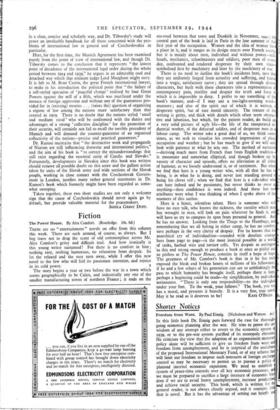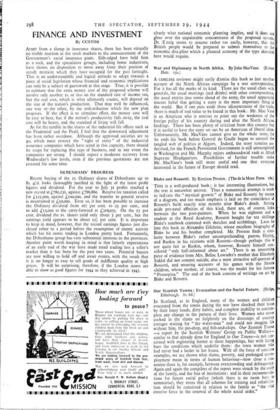Shorter Notices
Freedom from Want. By Paul Einzig. (Nicholson and Watson. 9s-)
IN this little book Dr. Einzig puts forward the case for thorough going economic planning after the war. He tries to prove the un wisdom of any attempt either to revert to the economic system 1939, or to the pre-war system purified of its monopoly elemen He criticises the view that the adoption of an expansionist mone policy alone will be sufficient to give us freedom from want freedom from unemployment, and he is sceptical of the usefu of the proposed International Monetary Fund, or of any scheme will limit our freedom to impose such measures of foreign each control as may be necessary to permit us to pursue a policy planned internal economic expansion. We need to establish system of peace-time controls over all key economic processes, we must be prepared to sacrifice a large measure of economic fr dom if we are to avoid heavy unemployment, increase produc and achieve social security. This book, which is written for .th general reader, is not always closely argued, and it contains II that is novel. But it has the advantage of setting out briefly a clearly what national economic planning implies, and it does not gloss over the unpalatable concomitants of the proposed system. Dr. 'E.nzig seems to assume rather too easily, however, that the British people would be prepared to submit themselves to the economic discipline which a planned economy of the type sketched here would require.



























 Previous page
Previous page